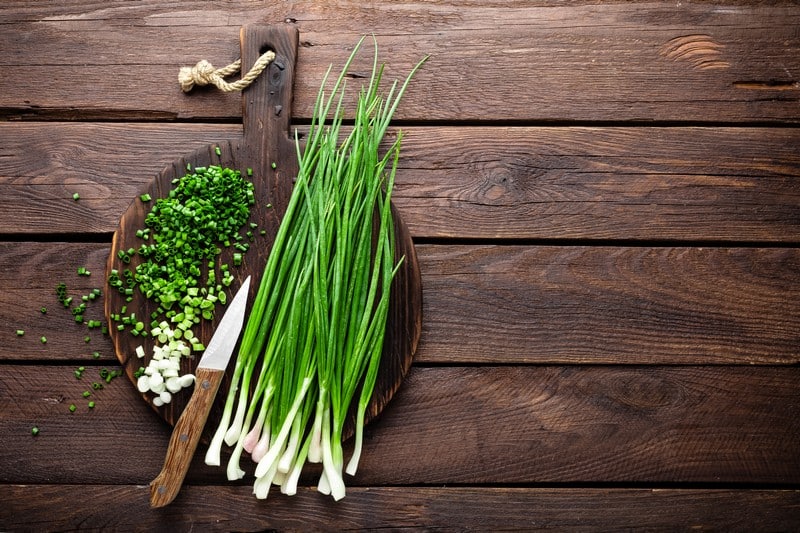Scallions

Scallions are known as an allium vegetable, which means they’re a vegetable closely related to garlic and onions. The tops of scallions offer a zing described as being oniony, whereas the bulb at the bottom is sharper, closer to garlic. Interestingly enough, garlic does not have any quercetin, despite being rich in antioxidants. Onions and scallions on the other hand, have plentiful amounts of quercetin and other flavonoids. Being rich in quercetin, scallions have a high antioxidant count, which works to neutralize free radicals in the body.
Scallions are known to help the body in various ways due to its abundance of phytonutrients (flavonoids included), serving to protect your cells against damage. Cancer of the stomach can be difficult to avoid due to all of the things we put in our body, but scallions are well-known for fending off the growth of cancer cells in the stomach. Similar to onions and garlic, it also has antibacterial properties and serves to avoid infection and various other issues.
Scallions typically don’t get enough credit as it’s usually overshadowed by onions and garlic. That said, it’s one of the healthiest additions to one’s diet, and is an excellent source of quercetin.










